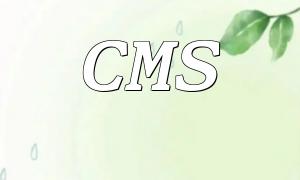In many applications, the capture time of a photo is crucial, especially in image management systems, album apps, or social media platforms. This article will explain how to use PHP's Exif extension to extract the photo's capture time and help developers retrieve and use this metadata.
Exif (Exchangeable Image File Format) is a metadata format embedded in digital photos that records various information about the photo, such as capture time, camera model, focal length, aperture, ISO, and more. Exif data allows developers to extract and use this information for specific functionalities.
To read Exif data in PHP, you need to ensure that the Exif extension is installed on the server. After installation, you can use the Exif functions to read the photo's Exif information. Here is a sample code that demonstrates how to extract the capture time of a photo:
// Path to the image
$imagePath = 'path/to/image.jpg';
// Get the Exif data of the photo
$exif = exif_read_data($imagePath);
// Check if the capture time exists
if (isset($exif['DateTimeOriginal'])) {
$captureTime = $exif['DateTimeOriginal'];
echo "The capture time of the photo is: " . $captureTime;
} else {
echo "Unable to retrieve the capture time of the photo";
}This code first defines the image file path and then uses the `exif_read_data()` function to retrieve the Exif data. If the Exif data contains the capture time (under the key `DateTimeOriginal`), the code will display the time; otherwise, it will show an error message.
In this code, we first define the image path. Then, we use the `exif_read_data()` function to read the Exif data and store it in the `$exif` variable. Next, we use the `isset()` function to check whether the capture time information exists. If it does, the capture time is assigned to the `$captureTime` variable and displayed; if not, an error message is output.
It's important to note that the capture time is stored under the `DateTimeOriginal` key in the Exif data, and the format is typically `YYYY:MM:DD HH:MM:SS`. Additionally, you can extract other Exif information, such as camera model, aperture, ISO, etc., based on your needs.
Extracting the capture time of photos is very useful in many scenarios. Here are some common use cases:
Using PHP's Exif extension, retrieving the capture time of photos becomes straightforward. This feature is extremely useful in many applications, especially when managing and sorting large numbers of photos.
However, it's worth noting that not all photos contain Exif information. Some photos may lose this data or not have Exif embedded at all. Therefore, when implementing this functionality, it's essential to consider error handling mechanisms to ensure that the code runs smoothly even when dealing with photos that lack Exif data.
Thank you for reading this article! I hope it has been helpful!









